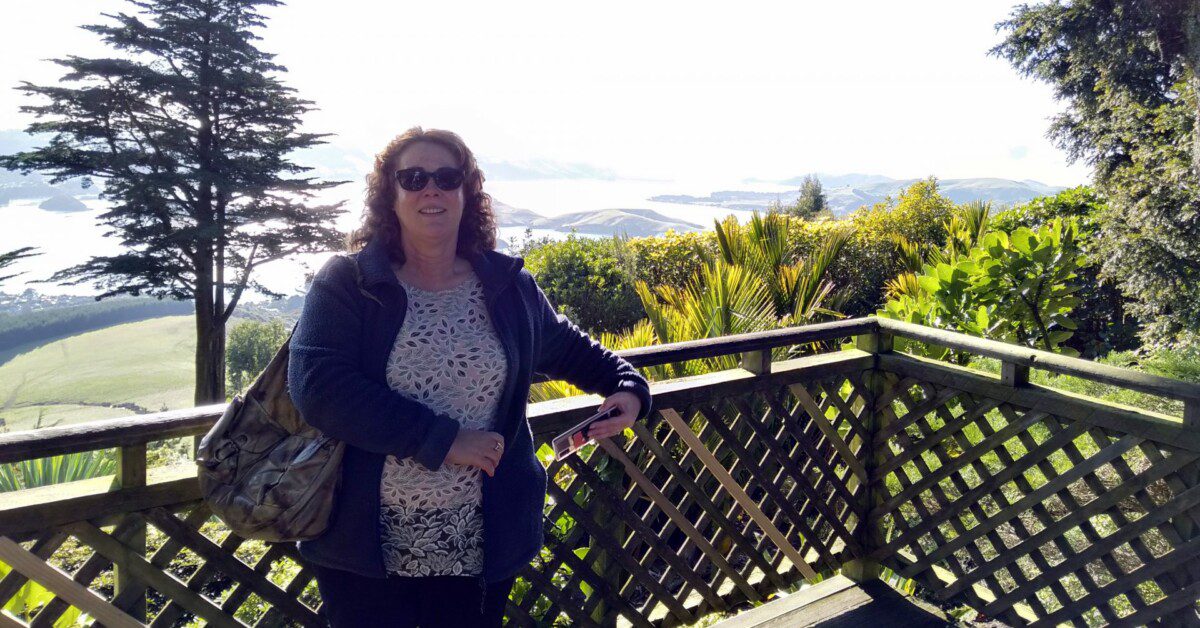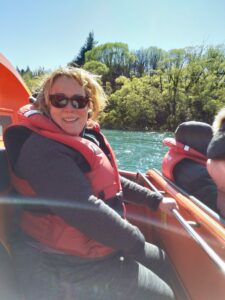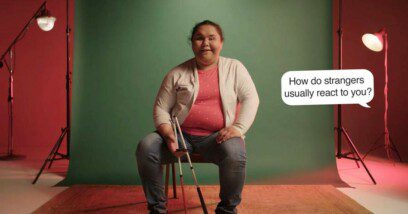
13 – 19 September 2021

Multiple Sclerosis (MS) is a chronic illness and one of the leading causes of severe disability. It is an auto-immune disease that often develops in adulthood, but can occur at any age – there is even a childhood form. The brain and spinal cord is surrounded by a fatty myelin sheath that transmits messages from the brain. MS interrupts those messages which result in a diverse range of symptoms including paralysis, lack of coordination, blindness, speech difficulties, fatigue and brain fog. MS can result in hidden disability or obvious disability.
New treatments are effective but they may not suit everyone. They don’t change the likely result of disability, although they do delay its progression.
My journey with MS by Suzie Linton, Communications Advisor
Kia ora koutou katoa
In 2008 while living in London I suffered a severe bout of flu, the 10 days flat-on-your-back in bed too sick to eat or watch TV kind. As I emerged from my sick bed, I noticed a small black spot in the vision of my left eye. It grew over the next couple of days and I presented at A&E. I had a deep thumping headache too and my brain didn’t seem to be working correctly. It was hard to know what was going on as I kept hitting my head on the kitchen cupboard because I was blind in one eye.
After a couple of days and a couple of hospital visits, I was diagnosed with Optic Neuritis which resolved itself in less than six weeks. I wasn’t told of its almost certain link with MS, I found that out myself when I got home and consulted Dr Google. When I asked the consultant about it on my next visit they denied the strong link and offered my anti-depressants.

The next few years were uneventful, although there were things like speech impediments, footdrop, poor balance and memory that would happen from time to time. Mostly I was well.
Roll on to 2014. I had just moved back to NZ when I noticed my foot was slipping off the accelerator pedal as I drove back from holiday. I had no strength and strange pain around my torso. Then I fell over in the mall twice, my extremities started tingling and three of my limbs stopped working.
I went to the doctor thinking I had strange back pain, only to walk out with a possible diagnosis of MS and an appointment at Wellington Neurology Department for 8am the next morning. They confirmed the suspected diagnosis and requested an MRI to confirm it – the result was positive.
What followed was the most difficult year of my life. My level of disability had continued to progress and I found walking and dressing difficult, I had a severe speech impediment. I didn’t feel safe driving my car, which I realised later was due to changes to my spatial awareness. I cried a lot and spent that year on the sickness benefit – even though I was applying for jobs no one wanted to hire me. The drugs available at that time sounded as bad as the disease.
In 2014 Pharmac decided to fund some modern MS treatments. I asked to be put on one of them and started on it early in 2015, just after my partner had moved to NZ.
Almost immediately I started to recover. The next couple of years saw recovery beyond what I had imagined was possible.
There are some side effects from the drug so I’m meeting with doctors next month to talk about changing to a different medication. I suspect changing from one drug to another may be a little rocky and I can only hope it works as well as the earlier one has…
Kia kaha e hoa mahi
Suzie Linton





